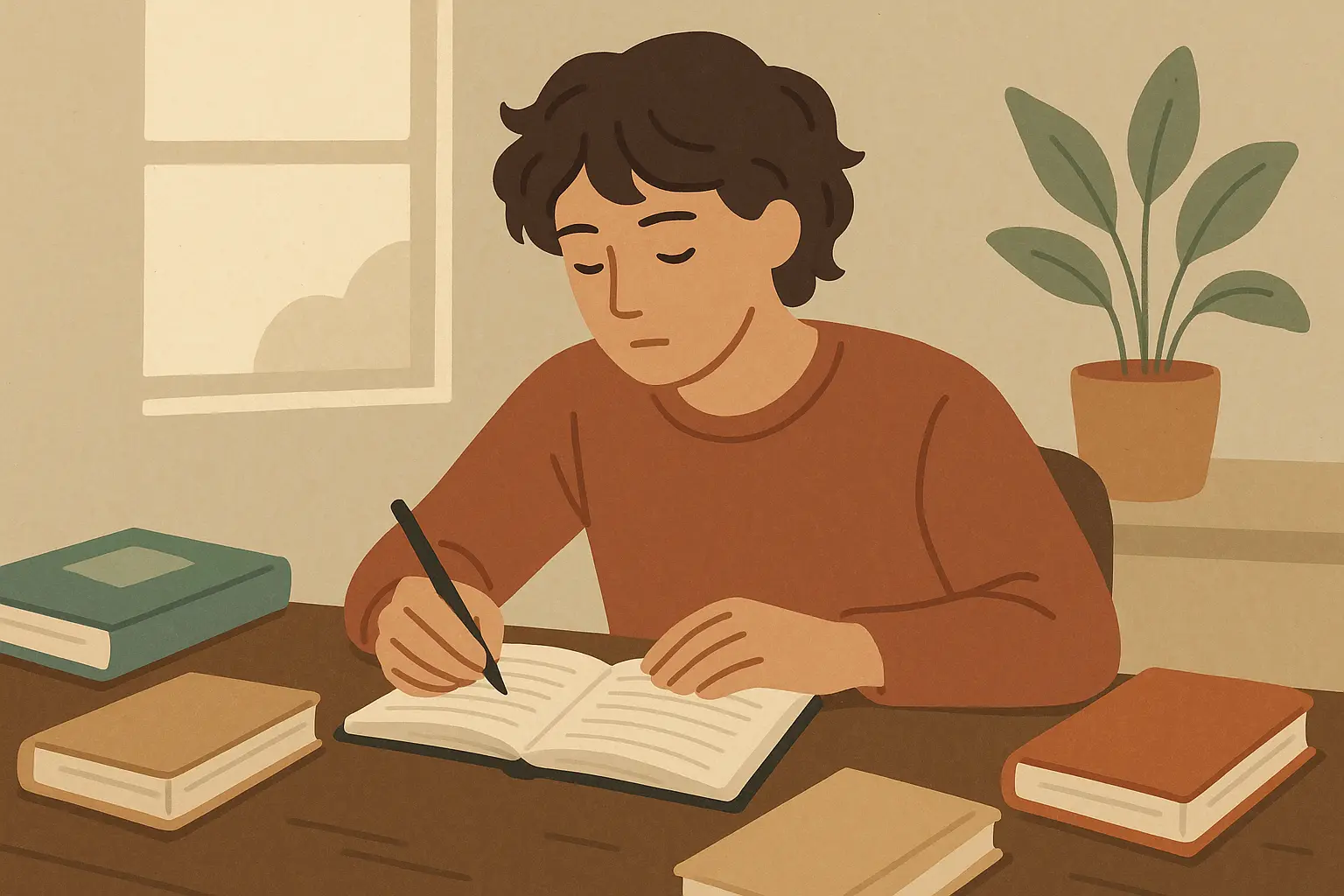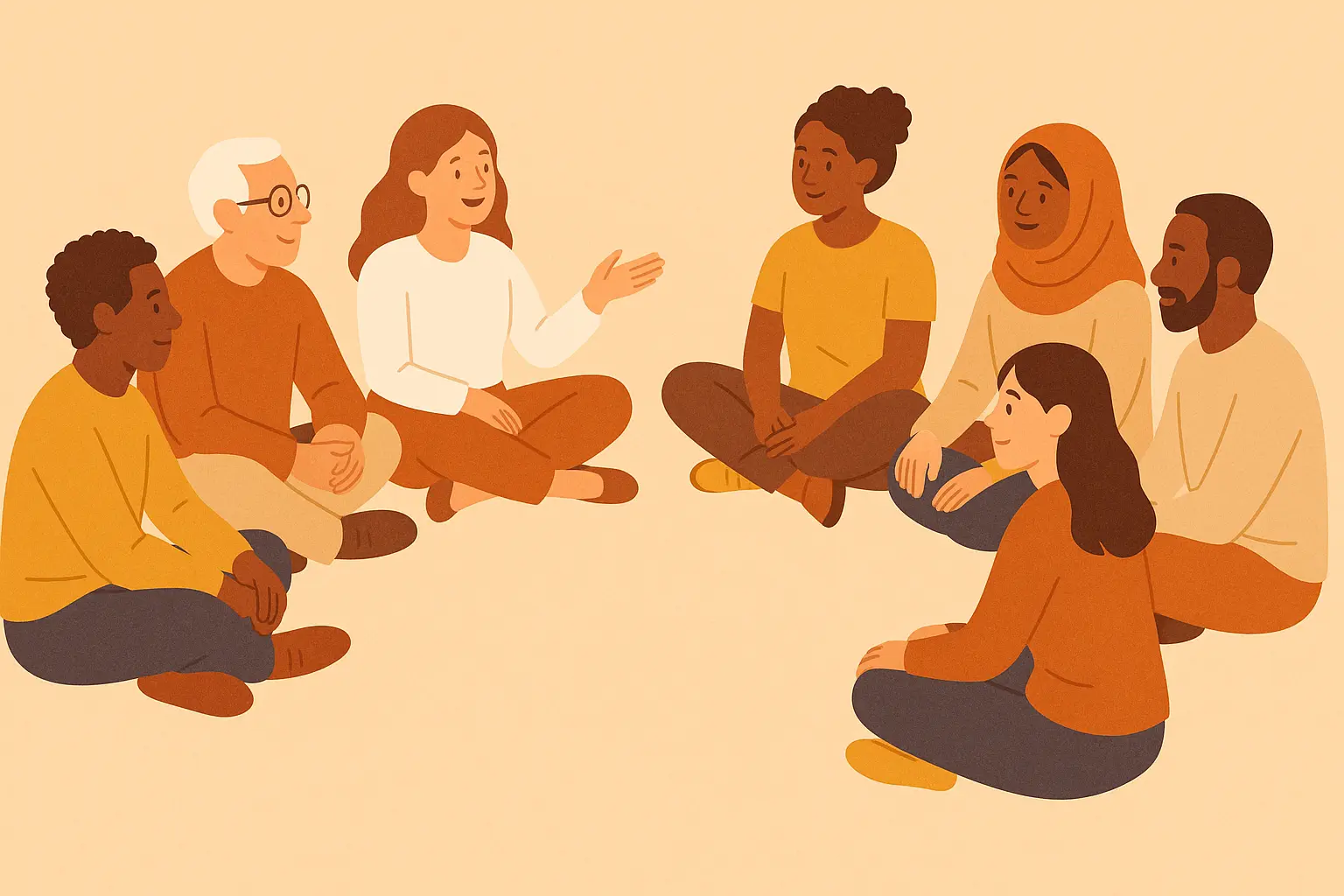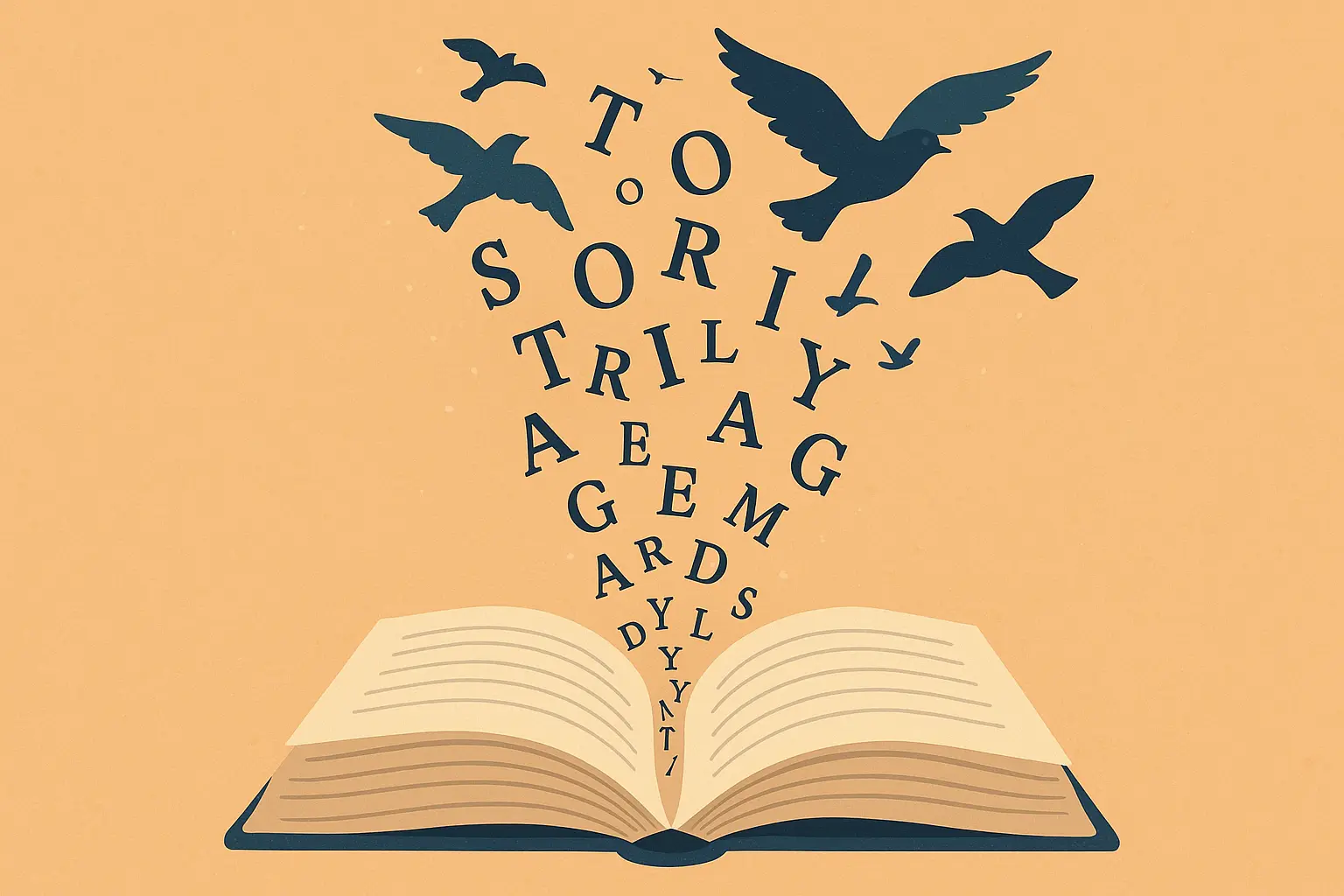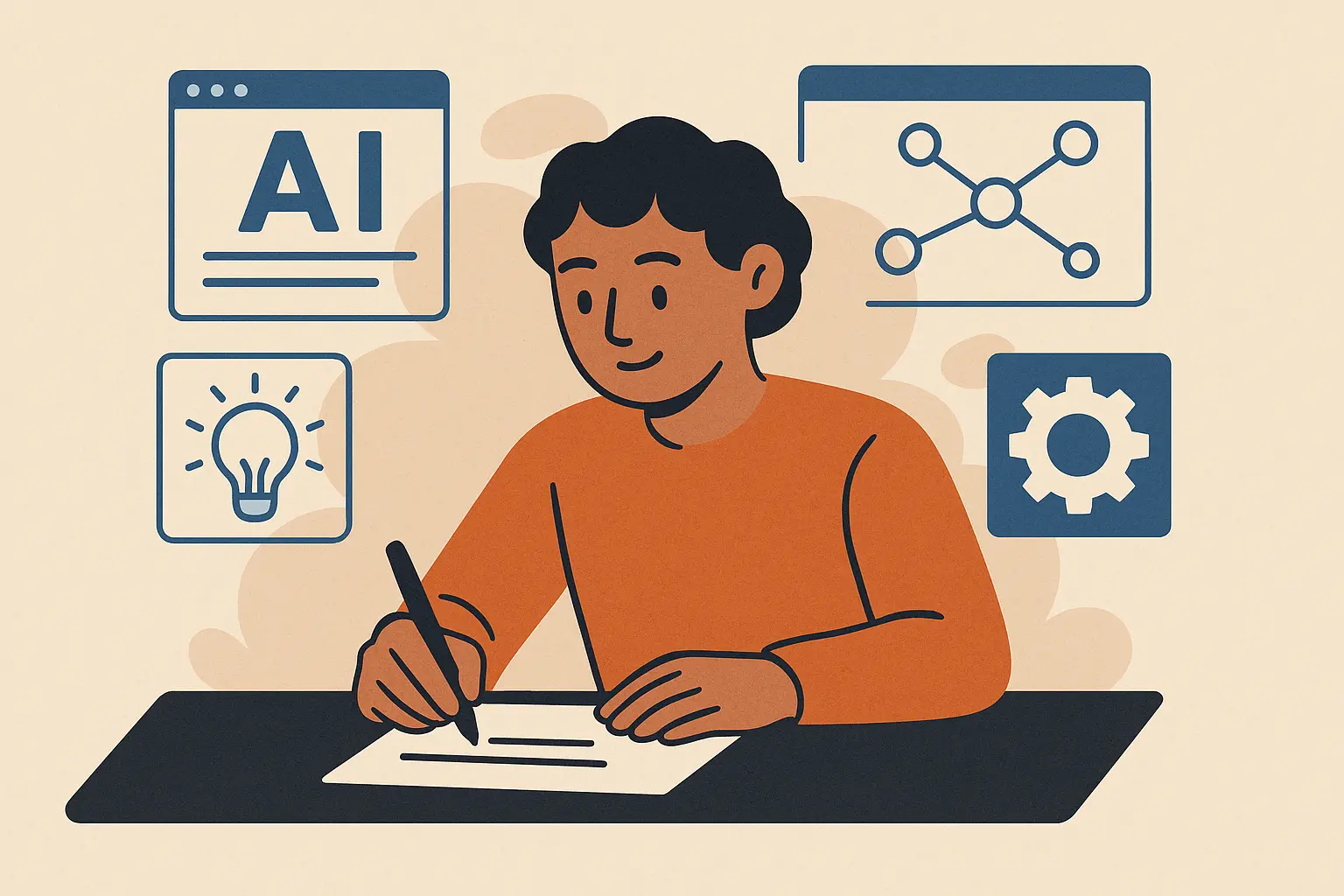Ever wonder why some stories stick with you for years while others fade from memory before you’ve even finished reading? I’ve been asking myself that question for decades, and I think I’ve finally figured it out. The stories that change us aren’t necessarily the longest or most complex—they’re the ones that hit us right in the heart with a truth we didn’t even know we needed to hear.
I remember discovering this during one of the roughest patches of my career. I was sitting in a dusty corner of the library, feeling pretty sorry for myself, when I picked up O. Henry’s “The Gift of the Magi.” That tiny story about a young couple sacrificing their most precious possessions for each other completely flipped my understanding of what really matters. Sometimes the shortest tales carry the deepest wisdom, and our minds work more like “story processors” than “logic processors”—which explains why narratives have such incredible power to teach us about life. Source: The Mind Collection

What You’ll Find Here
-
What makes a story truly life-changing (spoiler: it’s not what you think)
-
25 stories that’ll stick with you long after you’ve finished reading
-
When life kicks you down (Stories 1-5)
-
Finding yourself when you’re lost (Stories 6-10)
-
Love is complicated (and that’s okay) (Stories 11-14)
-
What’s the point of it all? (Stories 15-18)
-
Stories that remind you you’re stronger than you think (Stories 19-22)
-
Standing up for what’s right (Stories 23-25)
-
-
Why these stories work (without all the fancy literary jargon)
-
How to spot the difference between genuine inspiration and feel-good fluff
The Real Deal
Here’s what I’ve learned about truly transformative stories: they don’t try to fix you with simple answers. Instead, they show you something true about being human, and that truth changes how you see everything else. The best ones make you think, “Oh man, I never looked at it that way before.”
These 25 stories? They’re the real deal. I’ve organized them into six categories because, let’s be honest, sometimes you need a specific type of story. Maybe you’re dealing with a breakup and need something about love. Maybe you’re questioning your career path and need stories about finding purpose. Or maybe you just want to ugly cry in the best possible way.
These powerful narratives share a lot with other compelling fiction, as you can see in our guide to short story examples that demonstrate literary excellence. But what makes them special is how they combine incredible storytelling with insights that actually matter in real life.
What Makes a Story Life-Changing?
After reading hundreds of so-called “inspirational” stories, I can tell you that most of them are pretty forgettable. They’re either too preachy, too simple, or they try to manipulate your emotions without earning it. The stories that actually change your perspective? They’re different.
First off, they respect your intelligence. They don’t spell everything out for you or hit you over the head with their message. Instead, they trust you to figure things out, which makes the insights feel like your own discovery rather than someone lecturing you.
They also deal with real human complexity. Life isn’t neat and tidy, and neither are the best stories. They show characters making difficult choices, dealing with moral gray areas, and sometimes failing despite their best efforts. That’s what makes them feel true.
Here’s what to look for in genuinely transformative stories:
Stories that stay with you: You know a story has real impact when you’re still thinking about it days later. These aren’t just entertaining—they change how you see situations in your own life.
Universal truths with specific details: The best stories tackle big human experiences like love, loss, and growth, but they ground these themes in specific, believable situations that feel real.
Quality writing that serves the story: You don’t need flowery language, but you do need authors who know their craft. These writers pack incredible emotional punch into just a few pages.
Honest about life’s messiness: Real inspiration doesn’t come from pretending life is simple. It comes from showing how people find meaning and connection despite the complications.
Different voices and perspectives: Stories from various backgrounds and experiences give you multiple ways to understand universal human challenges.
Practical wisdom you can actually use: The best inspirational stories don’t just make you feel good—they give you new ways to think about real situations you’re facing.

25 Stories That’ll Change How You See Everything
I’ve spent years collecting these stories, and I can honestly say each one has taught me something important about being human. They’re organized by theme, but don’t feel like you have to read them in order. Jump around, find what speaks to you right now, and come back to the others when you need them.
When Life Kicks You Down
Let’s start with the tough stuff. These five stories are for when you’re facing challenges that feel impossible to overcome. They won’t sugarcoat the struggle, but they’ll remind you that humans are capable of incredible resilience—often in ways that surprise us.

1. “The Last Leaf” by O. Henry
This one gets me every time. A young artist is sick with pneumonia and becomes convinced she’ll die when the last leaf falls from the tree outside her window. What she doesn’t know is that her grumpy old neighbor is about to do something incredibly beautiful and heartbreaking.
O. Henry pulls off this amazing trick where the ending makes you completely rethink everything you just read. It’s about how the smallest acts of kindness can literally save someone’s life, and how love shows up in the most unexpected places.
2. “A Worn Path” by Eudora Welty
An elderly woman makes a dangerous journey through the Mississippi wilderness to get medicine for her grandson. The trip is brutal—she’s old, the path is treacherous, and she faces obstacles that would stop most people. But she keeps going because love doesn’t quit.
Welty turns what could be a simple story about determination into something epic. Every obstacle the woman faces becomes a metaphor for the challenges we all encounter, and her unwavering love shows us what real strength looks like.
3. “The Gift of the Magi” by O. Henry
You might know this one—it’s about a young married couple who are broke but want to buy each other Christmas gifts. They each sacrifice their most prized possession to buy something for the other, only to discover their gifts are now useless. But here’s the thing: that’s exactly what makes their gifts perfect.
This story completely changed how I think about generosity. Real giving isn’t about the money you spend—it’s about understanding what matters to someone else and being willing to sacrifice for their happiness.
4. “The Scarlet Ibis” by James Hurst
This one’s tough but important. It’s about two brothers—one “normal,” one disabled—and how the older brother pushes the younger one to overcome his physical limitations. It explores that complicated space between wanting to help someone and pushing them too hard because of your own pride.
The story asks hard questions about how we help the people we love. When does encouragement become harmful pressure? How do we support others while respecting their limitations? It’s heartbreaking and necessary.
5. “Thank You, M’am” by Langston Hughes
A teenager tries to steal a woman’s purse, and instead of calling the cops, she takes him home, feeds him, and treats him with unexpected kindness. It’s about second chances and how responding to wrongdoing with understanding can change everything.
Hughes shows us that sometimes the best way to stop someone from making bad choices is to treat them like they’re capable of making good ones. It’s a masterclass in compassion that hits you right in the heart.
Finding Yourself When You’re Lost
These five stories are for when you’re questioning who you are, what you want, or what you’re capable of. They’re about characters who discover something important about themselves—often by challenging their own assumptions or breaking free from what others expect of them.
6. “The Secret Life of Walter Mitty” by James Thurber
Let’s be honest—we’ve all had our Walter Mitty moments, daydreaming about being more interesting, confident, or adventurous than we actually are. This story follows a guy who escapes his boring life through elaborate fantasies, until he realizes that real adventure comes from engaging with actual life.
Think about your own daydreams. If you fantasize about being more assertive, start speaking up in one meeting. If you dream about creative pursuits, spend thirty minutes today on that neglected project. Thurber’s story suggests that instead of living in fantasy, we can take real steps toward becoming who we imagine ourselves to be.
7. “Cathedral” by Raymond Carver
This story completely changed how I think about assumptions. A man who’s clearly uncomfortable around blind people has to spend an evening with his wife’s blind friend. Through the simple act of drawing a cathedral together, both men discover that real understanding comes from genuine connection, not physical sight.
When I finished reading this, I sat in my car for ten minutes thinking about my own prejudices. It’s a perfect example of how challenging your assumptions about others can lead to profound personal growth.
8. “Everyday Use” by Alice Walker
Two sisters have completely different ideas about honoring their family’s heritage. One wants to display their grandmother’s quilts as art; the other wants to use them daily. It sounds simple, but it raises deep questions about how we connect with our roots.
Walker shows us that truly honoring our heritage means living its values every day, not just displaying its artifacts. It’s about authentic connection versus surface-level appreciation—a distinction that applies to way more than family quilts.
9. “The Lottery” by Shirley Jackson
I won’t spoil the ending, but this story will make you question every tradition you’ve never thought to question. A small town has an annual ritual that everyone participates in because “it’s always been done,” until the shocking conclusion reveals the danger of blind conformity.
After reading this, you’ll find yourself asking, “Why do we do things this way?” about everything from workplace policies to social customs. It’s a wake-up call about thinking for yourself instead of just going along with the crowd.
10. “Harrison Bergeron” by Kurt Vonnegut Jr.
In a future where everyone is forced to be exactly equal, one young man rebels against the system that’s trying to make him ordinary. It’s Vonnegut’s brilliant argument that true equality means equal opportunity to develop your unique talents, not forcing everyone to perform at the lowest common denominator.
This story celebrates the courage to be extraordinary in a world that often pressures us to blend in. It’s for anyone who’s ever felt like they had to dim their light to make others comfortable.

Love Is Complicated (And That’s Okay)
These four stories dig into the messy reality of human relationships. They don’t offer simple solutions or fairy-tale endings, but they do provide honest insights into how we connect with each other—and sometimes fail to connect despite our best efforts.
11. “The Story of an Hour” by Kate Chopin
A woman receives news that her husband has died in an accident, and for one hour, she experiences something unexpected: freedom. This groundbreaking story explores the complicated truth that you can love someone and still feel trapped by the relationship.
Chopin was way ahead of her time in showing that personal freedom and individual identity remain essential even within loving relationships. It’s a reminder that losing yourself in a partnership diminishes both people involved.
12. “What We Talk About When We Talk About Love” by Raymond Carver
Four friends sit around drinking and discussing love, and their conversation reveals that love means something completely different to each person. It’s not a story with a clear message—it’s more like eavesdropping on real people trying to figure out this impossible emotion.
Carver shows us that there’s no single “right” way to love someone. What looks like love to you might look like something else entirely to your neighbor, and that’s okay. It’s about accepting different expressions of love instead of judging them by your own standards.
13. “The Yellow Wallpaper” by Charlotte Perkins Gilman
This story follows a woman’s descent into mental illness, but it’s really about what happens when someone is isolated and denied agency in their own life. It was revolutionary when it was written, and it’s still relevant today in showing how mental health requires meaningful activity and personal control.
Gilman demonstrates that good intentions aren’t enough if they involve controlling someone “for their own good.” It’s a powerful reminder that isolation and inactivity often make psychological distress worse, regardless of the motives behind them.
14. “Hills Like White Elephants” by Ernest Hemingway
A couple sits at a train station having a conversation about an unnamed procedure (it’s about abortion, though the word never appears). The entire story is dialogue, and what they don’t say is just as important as what they do say.
If you’ve ever tried to avoid a difficult conversation (and who hasn’t?), this story will hit close to home. Hemingway shows us that honest communication requires addressing tough topics directly—avoiding crucial conversations usually damages relationships more than having them would.
What’s the Point of It All?
These four stories tackle the big questions about life’s meaning and individual purpose. They don’t provide easy answers, but they offer different ways of thinking about why we’re here and what makes life worth living.
15. “The Alchemist” (excerpt) by Paulo Coelho
A shepherd abandons his comfortable life to search for treasure, only to discover that the journey itself was the real treasure. It’s the classic story structure of the hero’s journey, but Coelho makes it feel fresh and relevant.
The story suggests that pursuing your dreams transforms you in ways that are more valuable than actually achieving the original goal. The person you become while chasing your dreams is often more important than whether you catch them.
16. “A Good Man Is Hard to Find” by Flannery O’Connor
This Southern Gothic story follows a family’s encounter with violence, and it’s not an easy read. But O’Connor uses this dark scenario to explore how moments of crisis can reveal both human cruelty and unexpected grace.
It’s a story that shows meaning can emerge from life’s darkest moments, and that even deeply flawed people can experience profound spiritual insights. It’s challenging but ultimately hopeful about human nature.
17. “The Things They Carried” by Tim O’Brien
Soldiers carry physical and emotional burdens that define who they are, and O’Brien uses this concept to explore how we all carry invisible weights that shape our character. The story’s structure is innovative—it’s part inventory, part meditation on memory and trauma.
This story reminds us that everyone carries hidden burdens, and understanding these invisible weights helps us respond to others with greater compassion and patience.
18. “Bartleby, the Scrivener” by Herman Melville
An office worker begins responding to all requests with “I would prefer not to,” and his passive resistance becomes a profound statement about individual dignity in modern society. It’s weird and funny and deeply philosophical all at once.
Melville shows us that sometimes saying “no” to unreasonable demands—even passively—becomes a way of maintaining personal authenticity in systems that try to reduce us to mere functions.

Stories That Remind You You’re Stronger Than You Think
These four stories celebrate the human capacity to endure and find meaning despite failure, loss, and extreme challenges. They show that dignity comes not from winning but from how we face whatever life throws at us.
19. “The Old Man and the Sea” (condensed) by Ernest Hemingway
An aging fisherman struggles with a giant marlin in what becomes an epic battle of endurance. He doesn’t win in the traditional sense, but the story shows that personal worth isn’t measured by external success—it’s measured by the courage and dignity with which you face your challenges.
Hemingway strips the story down to its essentials and shows us that sometimes the struggle itself is the victory. It’s about finding meaning in effort, not just in outcomes.
20. “Flowers for Algernon” by Daniel Keyes
A mentally disabled man undergoes an experimental procedure that temporarily makes him a genius, only to watch his intelligence fade back to its original level. The story is told through his journal entries, and you can see his intelligence rising and falling through his writing.
Keyes shows us that human worth isn’t determined by intelligence—it’s determined by our capacity for kindness, love, and connection. It’s heartbreaking and beautiful, and it’ll change how you think about what makes someone valuable.
21. “The Most Dangerous Game” by Richard Connell
A hunter becomes the hunted when he’s trapped on an island with a madman who hunts humans for sport. It sounds like a simple adventure story, but it’s really about discovering what you’re capable of when everything is on the line.
Connell explores how extreme circumstances reveal character, and the story encourages you to maintain your moral principles even when survival seems to depend on abandoning them. It’s about staying human when the world tries to make you into something else.
22. “To Build a Fire” by Jack London
A man traveling alone in extreme cold ignores warnings about the danger and pays the ultimate price for his overconfidence. It’s a harsh story about respecting forces bigger than yourself and the importance of listening to wisdom and experience.
London shows us that pride and dismissing others’ advice can have serious consequences. It’s a reminder to stay humble and prepared when facing challenges, whether they’re literal survival situations or metaphorical ones in your daily life.
Standing Up for What’s Right
These final three stories confront difficult questions about social responsibility, systemic injustice, and human dignity. They challenge you to examine your own role in the world while celebrating the power of understanding, support, and maintaining your humanity despite society’s pressures.
23. “The Ones Who Walk Away from Omelas” by Ursula K. Le Guin
This story describes a perfect utopian city with one terrible secret: all of its prosperity depends on keeping one child locked away in misery. Most citizens accept this as the price of their happiness, but some walk away from the city entirely.
Le Guin forces you to think about the hidden costs of your own comfort and prosperity. How much suffering are you willing to accept if it benefits you? Sometimes walking away from systems that benefit you but harm others is the only ethical choice.
24. “Sonny’s Blues” by James Baldwin
Two brothers take different paths through urban hardship—one becomes a teacher, the other a jazz musician struggling with addiction. The story explores how families can support each other even when they don’t understand each other’s choices.
Baldwin uses music as a metaphor for healing and communication, showing that supporting family members means accepting their chosen paths to recovery, even when those paths look different from what you’d prefer. It’s about love that doesn’t require complete understanding.
25. “The Metamorphosis” by Franz Kafka
A man wakes up transformed into a giant insect, and the story follows how his family and society react to his change. It’s weird and disturbing and brilliant—a metaphor for alienation and the importance of maintaining human dignity despite rejection.
Kafka shows us that when life circumstances change dramatically, maintaining your humanity and connection to others becomes more important than productivity or social acceptance. It’s about holding onto what makes you human even when the world treats you as something less.

Why These Stories Work (Without All the Fancy Jargon)
Here’s the thing about these stories—they don’t just entertain you for a few minutes and then fade away. They stick with you because the authors knew exactly what they were doing. They understood how to pack maximum emotional impact into minimum space, and they respected their readers enough to trust us to figure things out.
Take O. Henry’s stories. He’s famous for his twist endings, but it’s not just about surprising you. When you get to the end of “The Gift of the Magi” and realize what’s happened, you’re forced to rethink everything you just read. Suddenly every detail carries new meaning, and that’s what makes the story unforgettable.
Or look at Hemingway’s approach in “Hills Like White Elephants.” He never explicitly states what the couple is discussing, but by the end, you understand their entire relationship dynamic. That’s not showing off—that’s trusting you to be an active participant in the story rather than a passive consumer.
The best authors use techniques that make you feel like you’re discovering the story’s meaning yourself rather than having it explained to you. They leave just enough unsaid to make you think, use everyday objects that carry deeper meaning, and create characters who feel like real people you might know.
What Makes You Care About Characters in Just a Few Pages
Ever wonder how some authors can make you deeply invested in a character you’ve only known for a few pages? It’s because they show you something true about human nature that you recognize, even if you’ve never been in that exact situation.
When Raymond Carver shows us the narrator in “Cathedral” struggling with his prejudices, we recognize that discomfort because we’ve all made assumptions about people we don’t understand. When Alice Walker shows us the tension between the two sisters in “Everyday Use,” we recognize that family dynamic even if our specific circumstances are different.
The authors who create lasting impact don’t waste time on unnecessary details. Every element serves multiple purposes, creating layers of meaning that reveal themselves as you think about the story later. They trust that you’ll understand the deeper implications without having everything spelled out.
How the Best Writers Make You Feel Like They’re Talking Directly to You
The stories that change your perspective forever are the ones that feel personal, like the author wrote them specifically for you and your situation. That’s not accident—it’s craft. These authors write about specific situations in ways that illuminate universal human experiences.
They avoid preaching or lecturing. Instead, they show you characters making difficult choices and dealing with consequences, trusting you to draw your own conclusions about what it all means. They respect your intelligence and your ability to apply their insights to your own life.

What Separates the Life-Changers from the Feel-Good Fluff
After reading hundreds of supposedly inspirational stories, I can tell you that most of them fall into predictable categories. There are the overly sentimental ones that try to manipulate your emotions, the preachy ones that talk down to you, and the simplistic ones that offer easy solutions to complex problems.
The stories in this collection are different. They earn their emotional impact through authentic human experience rather than manipulation. They acknowledge that life is complicated and messy, and they don’t pretend that inspiration comes from platitudes or wishful thinking.
Stories That Will Make You Ugly Cry (In the Best Way)
The most powerful stories don’t just make you sad—they make you feel deeply connected to the human experience. “The Last Leaf” and “Flowers for Algernon” will definitely make you cry, but it’s the kind of crying that feels cleansing rather than manipulative.
The Ones That’ll Change How You See Your Family
“Sonny’s Blues” and “Everyday Use” offer insights into family dynamics that you’ll find yourself thinking about during your next family gathering. They don’t provide simple answers, but they do offer new ways of understanding the people closest to you.
Stories That Hit Different When You’re Going Through Something
“The Old Man and the Sea” and “A Worn Path” are the stories you turn to when you need reminders about human resilience. They don’t sugarcoat struggle, but they show that dignity and meaning can be found even in difficult circumstances.
Why Some Stories Stick With You Forever
The stories that transform your perspective share certain qualities that separate them from forgettable feel-good tales. They deal with real human complexity rather than simplified moral lessons. They show characters facing genuine dilemmas without easy solutions. They trust you to participate actively in creating meaning rather than passively receiving a message.
Most importantly, they respect the messy reality of human experience. They don’t promise that everything will work out perfectly, but they do suggest that meaning and connection can be found even in difficult circumstances.
These stories work because they tell the truth about what it means to be human—the struggles, the small victories, the moments of connection that make it all worthwhile. They remind us that we’re not alone in our experiences, and sometimes that’s exactly what we need to hear.

Maybe You Want to Write Your Own Stories?
After reading these incredible stories, you might find yourself wanting to create something meaningful too. That’s natural—great stories inspire us not just to live differently but to express our own experiences and insights.
If you’re feeling that creative spark, you’re not alone. These masterful stories show us what’s possible when we combine authentic human experience with skillful storytelling. Whether you want to explore your own challenges, share insights from your journey, or simply experiment with the techniques you’ve seen in these stories, the desire to create is worth pursuing.
The techniques these authors use—like leaving room for readers to participate in meaning-making, grounding universal themes in specific details, and trusting your audience’s intelligence—can be learned and adapted to your own voice and experiences. Understanding how effective storytelling works, as outlined in our guide on how to write a story using brain science behind effective storytelling, can help bridge the gap between inspiration and creation.
Modern tools can help you experiment with these storytelling techniques while you develop your own unique voice. Whether you’re working on personal essays, fiction, or any form of narrative, the principles demonstrated in these 25 stories—authenticity, respect for complexity, and genuine insight into human experience—remain the foundation of meaningful storytelling.
For additional inspiration on story structure and technique, exploring story examples that demonstrate great storytelling techniques can provide valuable insights into how different authors approach the craft.

Here’s What I Hope You Take Away
These 25 stories prove that you don’t need hundreds of pages to completely change someone’s perspective. The best inspirational literature works because it shows us something true about human experience, and truth has a way of sticking with you long after you’ve finished reading.
What makes these stories special isn’t just their individual messages—it’s how they demonstrate that authentic inspiration comes from honest storytelling. They don’t try to fix you with simple solutions or manipulate your emotions with artificial scenarios. Instead, they trust you to find your own meaning in genuinely human experiences.
Whether you’re facing personal challenges, relationship struggles, questions about purpose, or just need a reminder that you’re not alone in this messy, beautiful human experience, these stories offer both immediate comfort and lasting wisdom. They remind us that resilience, love, and meaning aren’t abstract concepts—they’re choices we make every day in how we respond to whatever life throws at us.
The diversity of voices represented here—from different cultures, time periods, and life experiences—ensures that you’ll find multiple pathways to understanding and growth. Sometimes you need O. Henry’s gentle wisdom about love and sacrifice. Sometimes you need Baldwin’s powerful insights into family and healing. Sometimes you need Kafka’s strange but profound exploration of what it means to maintain your humanity when the world treats you as something less.
These stories remind us that we’re not alone in our struggles, our hopes, or our search for meaning. Sometimes that’s exactly what we need to hear. And sometimes, if we’re lucky, that reminder is enough to change everything.



Add comment